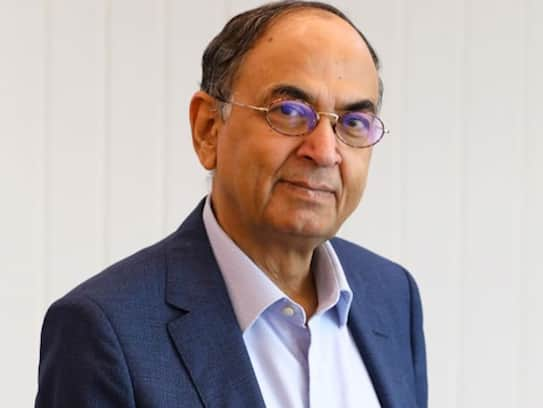

The implementation of precision farming techniques can lead to enhanced yields, improved crop quality and reduced environmental impact.

Precision farming, according to Dr. Parvinder Singh Gahlaut, the Managing Director of Indian Potash Limited, involves employing a data-driven approach to agriculture. By utilizing technology, precision farming enables farmers to manage their crops more efficiently and effectively. Through the collection and analysis of data concerning soil conditions, crop health and weather patterns, farmers are empowered to make informed decisions regarding planting, fertilizing and irrigating their fields. The implementation of precision farming techniques can lead to enhanced yields, improved crop quality and reduced environmental impact.
Evolution of Precision Farming
Over time, precision farming has evolved significantly with advancements in technology making it increasingly practical and impactful. While humans have practiced precision farming for centuries, recent decades have witnessed the availability of technological tools that have revolutionized the approach. Early stages of precision farming primarily utilized simple tools such as soil probes and yield monitors. However, as technology progressed, precision farming became more sophisticated. “Present-day precision farming has reached a high level of impact. Farmers now have access to a wide array of technologies including GPS, satellite imagery and drones to collect and analyze farm data. This data-driven approach facilitates better decision-making in farming practices,” says Dr. Parvinder Singh Gahlaut.
Technology in Agriculture
Precision farming encompasses various technologies that play crucial roles in its implementation. These technologies include:
1. GPS: Used to track the location of farm equipment and generate field maps, GPS enables precise targeting of inputs like fertilizer and pesticides.
2. Remote Sensing: Utilizing satellites and drones, remote sensing collects data on soil conditions, crop health, and weather patterns. This data is instrumental in making well-informed decisions regarding planting, fertilizing, and irrigating crops.
3. Variable Rate Application (VRA): VRA technology empowers farmers to apply inputs, such as fertilizer and pesticides, at varying rates across their fields. This is achieved by utilizing data collected from GPS, remote sensing, and other sources.
4. Drones: Increasingly utilized in precision farming, drones serve various purposes, including crop scouting, mapping and spraying.
Among the various technologies used in precision farming, satellite imagery and remote sensing hold immense significance. Satellites provide high-resolution images of fields, enabling tracking of crop growth, identification of stress areas, and mapping of soil conditions. Dr. Parvinder Singh Gahlaut explains that remote sensing utilizes sensors to collect data such as humidity levels, temperature, and rainfall. “The data acquired through these sensors is utilized to monitor crop health and weather patterns, and to optimize farm practices accordingly. On the other hand, satellite imagery provides a realistic view of crops through high-resolution images. Numerous startups are actively working in collaboration with multinational corporations in this field, which indicates a promising future for precision farming,” he adds.
Precision farming techniques have proven beneficial for soil and water management in several ways. For instance, VRA allows farmers to apply fertilizer and pesticides at different rates based on soil type and crop requirements. This approach helps to reduce the amount of inputs used, thus saving farmers' expenses. Furthermore, precision farming enables monitoring of soil moisture levels and optimization of irrigation practices, contributing to water conservation and improved crop yields and quality of produce.
Precision Farming for Sustainable Farming
Precision farming can be a valuable tool for sustainable farming. By using data to make better decisions about planting, fertilizing and irrigating, farmers can reduce their environmental impact and improve the sustainability of their operations. “I have witnessed people utilizing precision farming to reduce the overuse of fertilizer and pesticides which is helping the farmers save a lot of money and promotes sustainable farming”, explains Dr. Parwinder Singh Gahlaut. Additionally, precision farming can be used to conserve water which is a precious resource.
Challenges and Future Prospects
There are a number of challenges that need to be addressed in order to fully realize the potential of precision farming. Dr. PS Gahlaut believes that the first and foremost challenge is that “precision farming is expensive and this is a big barrier for most of the farmers in India as they hold minimal land for farming and they simply can’t afford it.” Another challenge is the availability of data. In order to make the most of precision farming, farmers need access to accurate and timely data. Finally, there is a need for more research on the effectiveness of precision farming techniques.
Despite these challenges, the future of precision farming is fairly bright. As the technology continues to develop and the cost of technology decreases and precision farming will become more accessible to farmers. Additionally, as more research is conducted on the effectiveness of precision farming techniques, farmers will be able to use this technology to improve their yields, reduce their environmental impact, and make their operations more sustainable.
Precision farming is a rapidly evolving field with the potential to revolutionize agriculture. By using data to make better decisions about planting, fertilizing and irrigating, farmers can increase yields, improve crop quality and reduce their environmental impact. Dr. Parwinder Singh Gahlaut believes that the future of precision farming is bright, “and as the technology continues to develop, this approach to agriculture will become more widespread.”
Disclaimer: This is a featured content
Read Exclusive COVID-19 Coronavirus News updates, at MyNation.